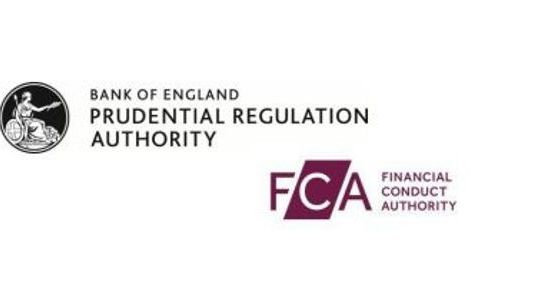AIMA/MFA/KPMG: The Cost of Compliance
By KPMG, AIMA & MFA
Published: 01 October 2013
The following is an online summary of this particular AIMA paper
Foreword
As the hedge fund sector becomes increasingly institutionalized, it seems clear that managers have started to come under ever-greater scrutiny, particularly from regulators. As a result, regulations promulgated in the immediate aftermath of the credit crisis have now started to come into effect, creating a complex environment of regulatory change for those operating in the hedge fund sector.
We believe that – for the sector to achieve growth through this era of fundamental change – fund managers will need clear insight into the challenges posed and solutions being offered in the market today. That is why KPMG, the Alternative Investment Management Association (AIMA) and the Managed Funds Association (MFA) partnered together to undertake a comprehensive survey, both online and in person, of hedge fund managers. What we found was a sector that is taking its compliance obligations seriously, with significant investments of time, effort and capital already being made by many of those operating in the sector. But there is also a strong recognition that as costs continue to climb as managers grapple with new compliance requirements, barriers to the industry are also being raised. This report explores these challenges and opportunities in more detail and shines a light on some of the solutions being undertaken in the market. Throughout, we have incorporated quotes and insights gathered from our one-on-one interviews with some of the industry’s most successful fund managers, as well as analysis from our own hedge fund specialists. We hope that this report provides managers and regulators with valuable data to help inform and drive their decision making processes and adds to the existing body of knowledge on the cost of regulatory compliance for the hedge fund sector.
Robert Mirsky
Global Head of Hedge Funds
KPMG in the UK
Andrew Baker
CEO
AIMA
Richard H. Baker
President & CEO
MFA
About the research
To learn more about the impact that regulation is having on the hedge fund sector, KPMG partnered with the Alternative Investment Management Association (AIMA) and the Managed Funds Association (MFA) to conduct a comprehensive, global survey of hedge fund managers around the world.
What we hoped to discover was how greater regulatory scrutiny was impacting managers. We also wanted to compare the cost of compliance across different regions and uncover some of the solutions that managers had implemented in response.
This report incorporates the views of 200 hedge fund managers representing approximately USD910 billion of assets under management (AUM). Survey respondents included hedge funds of all sizes, with approximately a quarter of respondents managing less than USD100 million, 34 percent managing between USD100 million and USD999 million, 32 percent managing between USD1 billion and USD9.9 billion, and 9 percent managing greater than USD10 billion.
And while the greatest proportion of respondents (39 percent) named North America as the primary location of their headquarters, the geographic dispersion of respondents roughly reflects the overall market with around a third (32 percent) naming the UK as their headquarters, 16 percent naming Asia Pacific and 12 percent identifying themselves as headquartered in (non-UK) Europe.
This report also benefited from a series of structured one-on-one interviews with leading hedge fund managers in major centers around the world who provided deeper insight into the complexities and opportunities currently facing the sector. Surveys were conducted online between May 2013 and June 2013, while the structured interviews were conducted between May 2013 and August 2013.
On behalf of KPMG, AIMA and MFA, we would like to thank all of those that participated in the survey. In particular, we would like to thank the managers that gave their time to share their views through our structured interviews. The insights and views of all of our participants – online or in person – have been invaluable in helping form this unique and valuable report.
Executive summary
The hedge fund industry continues to grapple with an environment of change and uncertainty. The trend towards increased institutionalization of the sector continues, bringing even greater focus onto the due diligence, risk management and transparency management processes of funds and their managers. At the same time, the regulatory environment has continued to shift which has created not only uncertainty and complexity, but also significant costs.
As this report clearly demonstrates, the hedge fund industry is taking its compliance obligations seriously. Not only have most firms already put significant time, effort and capital into meeting regulatory requirements, the majority have also elected to allocate these costs to the fund manager rather than the funds themselves.
Those costs continue to mount; according to our data, total industry costs are more than USD3 billion. For established funds and managers, the rising cost of compliance is squeezing margins, and for some is influencing product and operating model decisions and adding to the already high level of complexity. Smaller funds, in particular, are paying the price; our survey demonstrates that smaller funds spend more (as a proportion of AUM) than their larger peers. For new funds launching in the market, the story may be of greater concern with the cost of compliance quickly becoming a significant barrier to entry.
This report also finds that the vast majority of managers expect their compliance costs to increase over the next five years. Many say that the ongoing cost of complying with new regulation will continue to require precious resources and time, making the industry less competitive and less appealing to investors. Managers also suggest that the more complex the regulation, the more they believe they will spend. AIFMD and FATCA, in particular, are creating concern for managers, as is the SEC’s Form PF.
Our survey and in-person interviews uncovered a number of important findings that hedge fund managers, investors and regulators should note. Some of the highlights include:
- The industry is investing heavily in compliance on average spending more than 7 percent of their total operating costs on compliance technology, headcount or strategy. Based on extrapolations from our data, we believe that compliance is costing the industry more than USD3 billion with smaller fund managers spending USD700,000 on compliance on average, medium fund managers spending approximately USD6 million, and large fund managers spending more than USD14 million.
- Smaller hedge funds seem to be spending more, both as a percentage of AUM and relative to operating costs, than their larger counterparts suggesting that some of the smaller funds may struggle in the face of increased regulatory scrutiny.
- Overwhelmingly, managers are absorbing the cost of compliance rather than passing it on to their funds. The vast majority of respondents said that their managers were absorbing between 76 and 100 percent of the costs.
- Managers around the world are struggling with an increased cost of compliance including capital investments, time spent on compliance and outsourcing requirements which, in turn, is creating significant barriers to entry for new players and growth for existing players.
- Managers rank AIFMD and FATCA highest in terms of cost, time and need for external support, likely due to their complexity and global reach.
- Nine out of ten managers expect their spend on regulatory compliancefocused technology and external consultants to increase over the next five years, indicating an expectation of rising compliance costs.
- Larger managers are more likely to be subject to the European Short Selling Regulation than smaller managers and two thirds of the larger managers said that short-selling bans would negatively impact their involvement in the markets of that jurisdiction.
- The majority of managers say that they have not considered moving their fund domicile, management company or center of main economic activity in response to regulatory change: Fifty-five percent said they had not considered this action while 40 percent said that they had.








